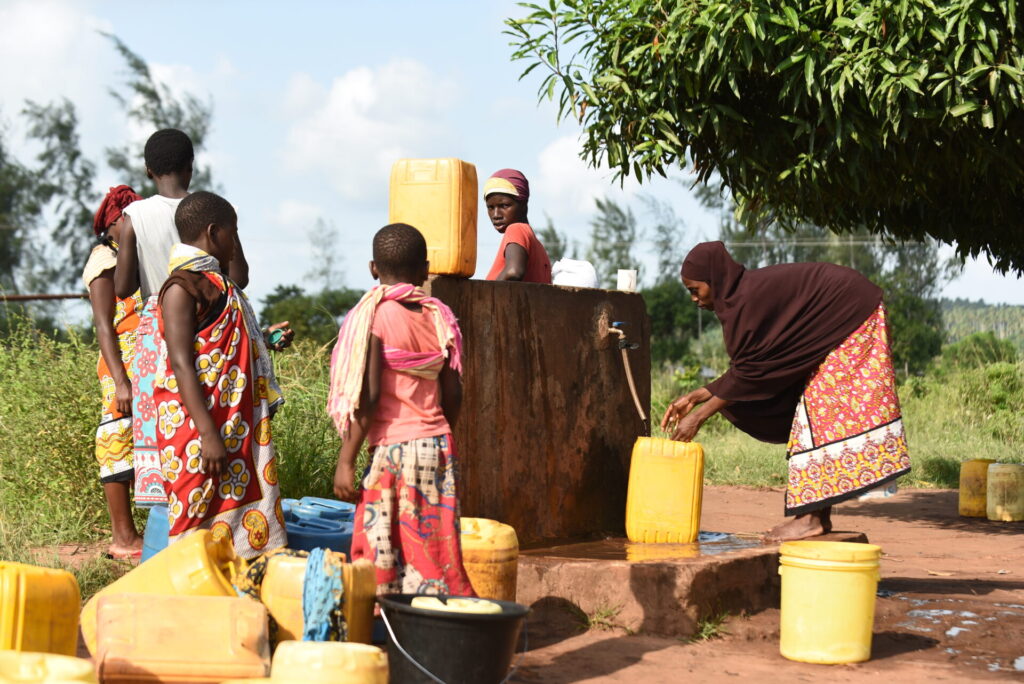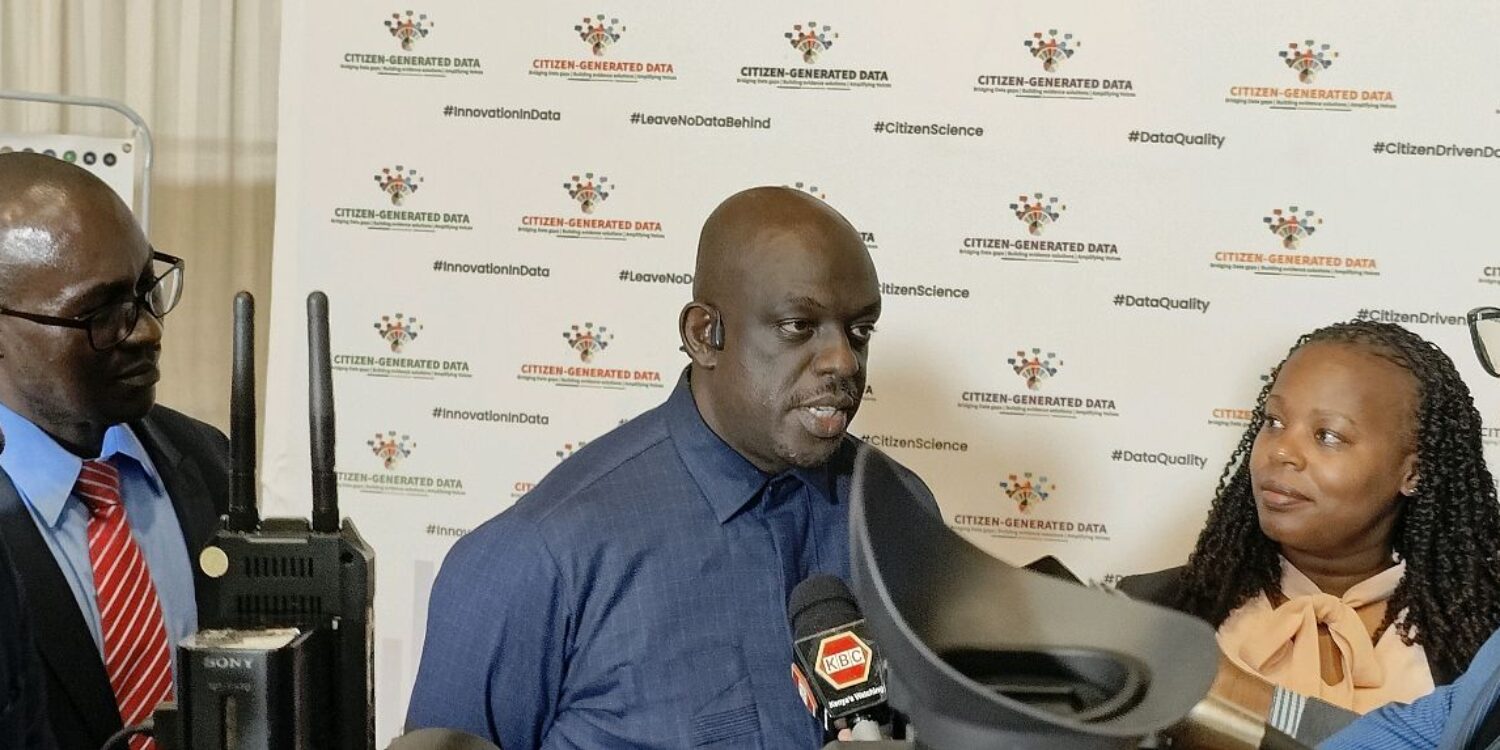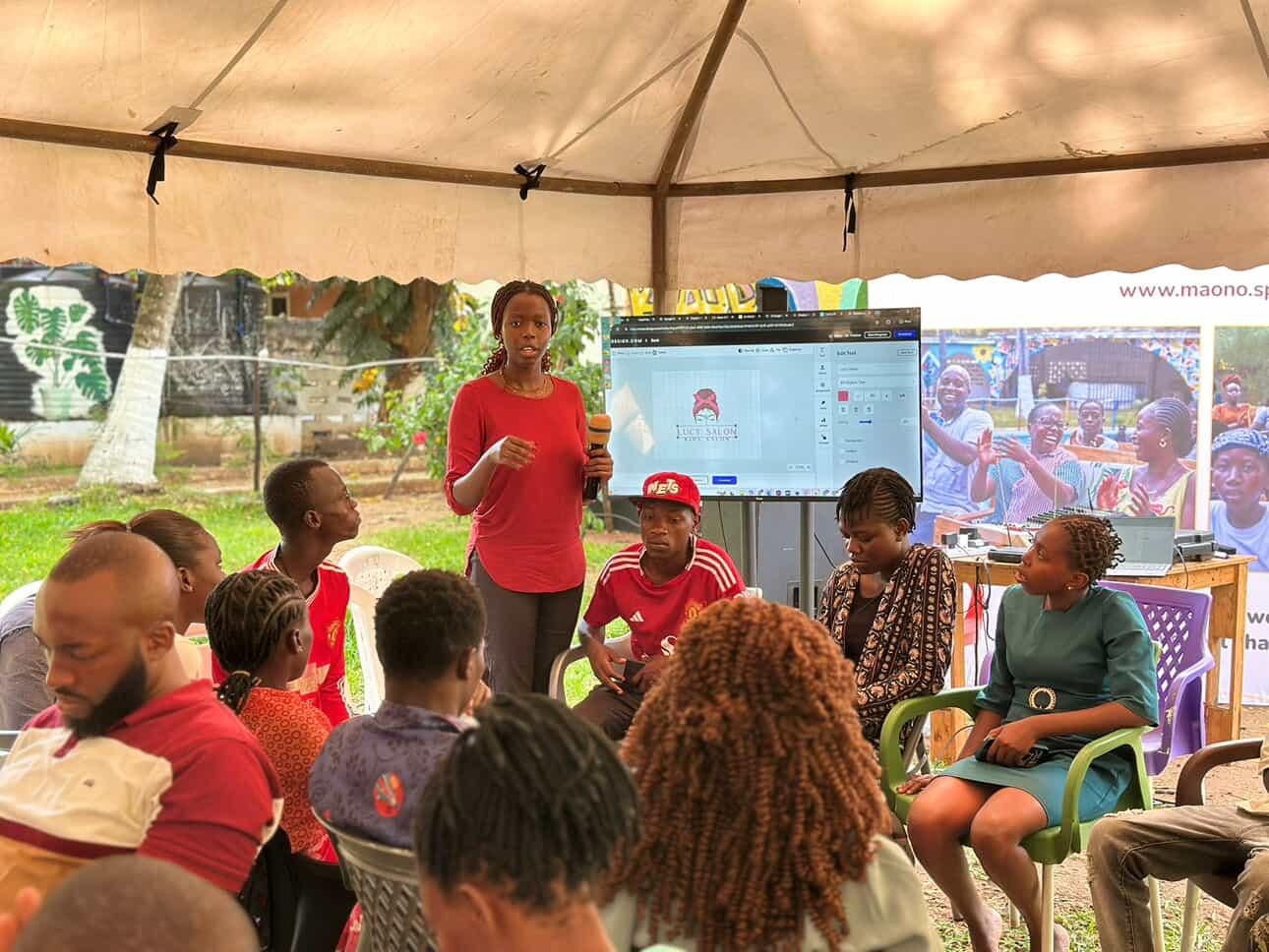The Kenya National Bureau of Statistics (KNBS) continues to lead the way in championing Citizen Generated Data in Kenya. On 22nd November the KNBS inaugurated their Technical Working Committee on Citizen-Generated Data (CGD) to strengthen stakeholder collaboration in adoption of quality CGD as an alternative source of data for official reporting where data gaps exist, especially in reporting on Sustainable Development Goals (SDGs).
Al Kags, speaking at the Inauguration of the Technical Working Committee on Citizen Generated Data.
This milestone is a step forward from a journey that began in February 2023 when we partnered with the KNBS to launch the Technical Working Group on Citizen-Generated Data to institutionalize CGD as part of the National Statistical System (NSS).
“We live in a time that demands robust statistical and comprehensive national data systems. Focusing on Citizen Generated Data, I believe KNBS and the Technical Working Group (TWC) play a pivotal role in encouraging data sharing.” said Al Kags.
Al Kags addressing the media: Minute 1:39
Given that a significant portion of valuable Citizen Generated Data often remains unnoticed or underutilized, establishing a democratic data-sharing platform would go a long way in building knowledge and developing our people’s appetite for data that will build Kenya’s national data system.
We have held that for a government to be properly responsive to citizen needs, such data is crucial. Our view is that development can happen most sustainably from the village level and not top-down from the national as it is currently attempted. This goes a long way in making sure that the “invisible” citizens feel seen and heard.
“Invisible” citizens are individuals and communities who are not adequately recognised or represented within the spheres of governance and development. Their invisibility stems from a lack of acknowledgement and responsiveness from authorities and barriers that prevent them from participating effectively in public affairs due to reasons such as:
- Lack of Access to Information: Citizens often lack access to crucial information about government data, government operations, resources, and how to engage in the policy-making process. Without this information, they cannot fully exercise their rights or influence decisions that impact their lives.
- Educational Disparities: Functional illiteracy limits the ability of citizens to understand and interact with governance systems. It also hinders their ability to mobilize and advocate for their needs and rights.
- Systemic Exclusion: Structural factors, such as poverty, gender discrimination, and geographical isolation, contribute to the marginalization of certain groups, making their participation in governance processes more difficult.
- Cultural and Social Barriers: Norms and societal expectations can prevent certain groups, especially women and youth, from voicing their opinions and concerns. Cultural beliefs might also discourage people from challenging the status quo or engaging in public discourse.

Extractives Program: Bwiti, Kwale County Locals
Through our extensive years of experience collaborating with governments and marginalized communities across various Kenyan counties, we’ve observed that when these communities gain access to their own data, they become visible to government officials. This increased visibility allows officials to better understand the community’s needs and acquire a clearer perspective on how they can provide meaningful assistance.
Benjamin Charagu, Operations Manager, leading a session during the GGLI Program: Nakuru County, Githioro Location.
As we move towards a more open government, we remain committed to supporting all KNBS’s efforts to put Kenya on the forefront of matters of data governance. We are even more energized to work towards our vision for a future with an open society that is managed by informed, fact-driven citizens. This society features a responsive and accountable government that delivers the services its citizens need at the level of service they deserve.













